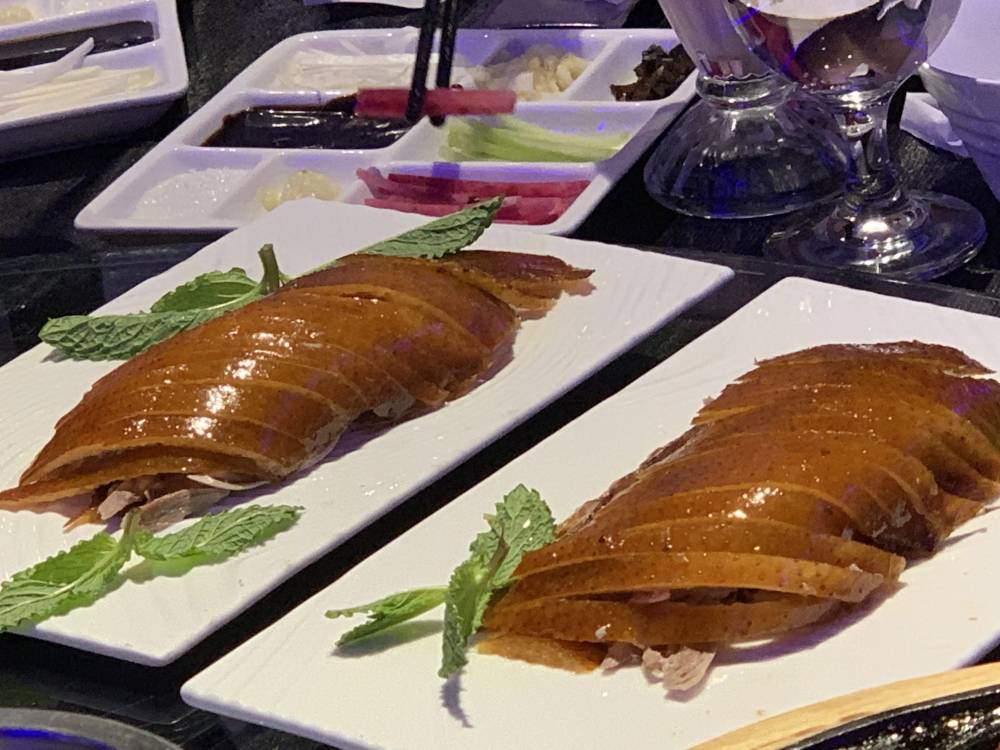Marketing Lunar New Year feast

In celebrating Chinese New Year, the careful choice and presentation of food go beyond taste; it’s like an art that weaves together the meaning of prosperity, happiness and good fortune. Chinese traditions put a lot of importance on what a certain food symbolizes, believing that eating it can bring positive things into your life. The auspicious meanings associated with food often stem from its pronunciation or appearance.
In Chinese culture, being prosperous is really important, and they show this by giving ampao or red envelopes with money during special times, bringing good luck and financial blessings. The common Chinese New Year greeting, ‘Gōng Xi Fā Cái,’ isn’t just about wishing a Happy New Year; it’s more like saying, ‘I hope you become prosperous.’ As you explore the dishes here, you will discover why the Chinese don’t just order them for the delicious flavors but also to absorb the shared wishes for a joyous and prosperous year ahead. Let’s take a closer look at this special list and what makes it meaningful.
Spring rolls
Resembling gold bars, spring rolls symbolize wealth and prosperity. The culinary precursor of good fortune, they set the tone for an auspicious feast, marking a fresh start.
Dumplings
Shaped like ancient Chinese money (Chinese silver ingots), dumplings embody prosperity. With origins reaching back to ancient dynasties, the act of making and consuming dumplings is a timeless ritual believed to attract good luck and wealth.
Green vegetables
During festive occasions like Chinese New Year, various greens are often used in combination to create a symbolic dish that represents a wish for energy, renewal and growth. Bok choy, a type of Chinese cabbage, and Chinese mustard greens are particularly popular due to their specific associations with wealth and good fortune, adding to the overall prosperity theme of the meal.
Pork belly
The tradition of serving pork is rooted in the symbolism attached to the fatty portions of pork. The Chinese word for “fat” sounds similar to the word for “wealth” or “abundance” in various Chinese dialects. By including pork belly in the New Year feast, there is a symbolic wish for a prosperous and abundant year ahead. The fat is seen as a representation of wealth and the hope for financial success and prosperity in the coming year.
Longevity noodles
Long noodles, symbolizing longevity, are presented uncut, signifying a desire for a lengthy and prosperous life. This tradition is linked to the belief that the length of the noodles corresponds to the duration of one’s life and the abundance of good fortune. This symbolic practice—observed not only in the act of eating but also by tossing the noodles—is intended to usher in blessings of health, longevity and prosperity in the approaching year.
Duck or chicken
Duck symbolizes fidelity and happiness, signifying a strong, lasting marriage and joyful family life. The word for “duck” in Chinese sounds similar to the word for mutual or together. This phonetic similarity forms the basis for the symbolic connection between duck and fidelity. The idea is that, just as ducks often mate for life and exhibit strong pair bond, serving duck during special occasions like weddings or the Chinese New Year is believed to symbolize fidelity, faithfulness and a harmonious union.
Whole chicken, on the other hand, symbolizes family togetherness and prosperity. However, the key to serving a whole duck or chicken lies in how it is presented. Showing it to guests whole first and then taking it to the kitchen to be chopped before serving is a practical solution. This approach adheres to any cultural or personal preference regarding the avoidance of chopping in front of guests during Chinese New Year celebrations. It ensures that the dish is prepared in a way that respects traditions while still facilitating convenient serving in smaller portions. This approach avoids the act of cutting at the table, which can be associated with severing ties. Chinese New Year is a time for unity and familial bonds, making whole or uncut dishes more auspicious.
Prawns
With their gracefully curved shape resembling a smiling face, prawns symbolize happiness and laughter, adding a touch of joy and good fortune to the celebration. Prawns are further associated with the concept of abundance and wealth, attributed to their substantial size and the belief that they bear a resemblance to the golden ingot.
Whole fish
The choice of a whole fish, with head and tail intact, represents completeness, abundance and prosperity. The pronunciation “yu” for fish, is similar to “surplus.” Chinese individuals often strive to end the year with a surplus, as they believe that successfully saving something by year-end signifies the potential for greater earnings in the coming year. Serving a whole fish is also visually impactful and reinforces the idea of unity and continuity. Serving two fish symbolizes the wish for a surplus year after year.
Mandarin fruits
Round and golden oranges are tied to wealth, good luck and auspiciousness. The linguistic harmony between “orange” and “luck” makes them a favored gift during the New Year.
Dessert
Red bean soup or sweet soup is enjoyed for its sweet taste, and the color red is associated with good luck and warding off evil spirits.
What not to order
While crafting an auspicious Chinese New Year meal is a delightful venture, it’s equally important to be sensitive of taboos to ensure a harmonious celebration. Here’s a list of what not to have and the cultural reasons behind these choices:ʎ Chrysanthemum flowers: They are beautiful but associated with funerals. To avoid any sad vibes, it’s best not to use or garnish dishes with chrysanthemums.ʎ Sour or bitter flavors: Be cautious of dishes like bitter melon or hot and sour soup. They might be linked with negativity. During the festive season, it’s better to focus on sweet and joyful flavors.
Sharp objects or cutting tools: Serving dishes with knives or scissors is a no-go. They are thought to cut off good fortune, thus going against the wish for a smooth and prosperous year.
Missing or broken dishes: Make sure all dishes are complete and unbroken. In Chinese culture, broken or incomplete items symbolize fragmented or incomplete luck.
In addition, avoid ordering shark fin soup as it may unintentionally portray you and your companions as outdated, insensitive, grandstanding and environmentally irresponsible, especially in the context of evolving ethical and environmental concerns. Such a choice might create an unfavorable image and tone, as it contrasts with the growing global awareness and advocacy for more conscientious and environmentally friendly practices.By keeping these taboos in mind, you set the stage for a celebration that not only tastes good but also respects cultural traditions and brings positive vibes for the Chinese New Year. May your feast be a joyful start to the year ahead!
For businesses wanting to match their stuff with the Chinese New Year, it’s important to get what makes the celebration tick. Think of it like a puzzle, where understanding the cultural bits is a big deal. Traditional dishes have meanings tied to luck and good vibes, so it’s like uncovering a secret code.
When you’re bringing out a product, try to add things that shout out good luck, togetherness and a long, happy life. Pick colors that are seen as lucky; use symbols that mean something, and give your product a name that fits the vibe. It’s like telling a cool story that goes along with the special foods of the festival. This way, you’re not just selling something; you’re creating an experience that feels just right for the occasion.
It’s all about making sure your launch fits the culture and grabs people’s attention in the best way.
Josiah Go is the chair and chief innovation strategist at Mansmith and Fielders Inc. Please check the schedule of his appearances at www.mansmith.net
Josiah Go is chair and chief innovation strategist of Mansmith and Fielders Inc. He is also cofounder of the Mansmith Innovation Awards. To ask Mansmith Innovation team to help challenge assumptions in your industries, email info@mansmith.net.

















